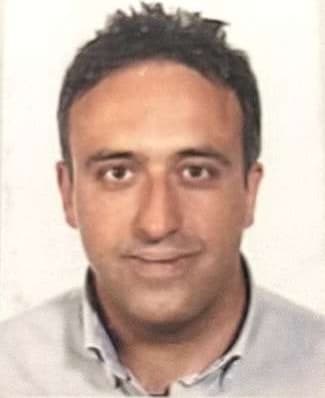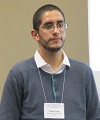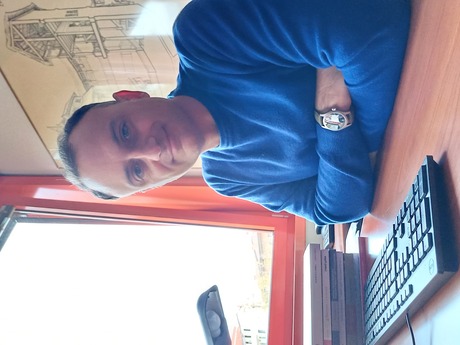Studiare
In questa sezione è possibile reperire le informazioni riguardanti l'organizzazione pratica del corso, lo svolgimento delle attività didattiche, le opportunità formative e i contatti utili durante tutto il percorso di studi, fino al conseguimento del titolo finale.
Calendario accademico
Il calendario accademico riporta le scadenze, gli adempimenti e i periodi rilevanti per la componente studentesca, personale docente e personale dell'Università. Sono inoltre indicate le festività e le chiusure ufficiali dell'Ateneo.
L’anno accademico inizia il 1° ottobre e termina il 30 settembre dell'anno successivo.
Calendario didattico
Il calendario didattico indica i periodi di svolgimento delle attività formative, di sessioni d'esami, di laurea e di chiusura per le festività.
| Periodo | Dal | Al |
|---|---|---|
| Annuale (Lingue e letterature straniere) | 27-set-2021 | 28-mag-2022 |
| I semestre (Lingue e letterature straniere) | 27-set-2021 | 8-gen-2022 |
| II semestre (Lingue e letterature straniere) | 14-feb-2022 | 28-mag-2022 |
| Sessione | Dal | Al |
|---|---|---|
| ESAMI LINGUE - sessione invernale | 10-gen-2022 | 12-feb-2022 |
| ESAMI LINGUE - sessione estiva | 30-mag-2022 | 23-lug-2022 |
| ESAMI LINGUE - sessione autunnale | 29-ago-2022 | 24-set-2022 |
| Sessione | Dal | Al |
|---|---|---|
| LAUREE LINGUE - sessione autunnale (a.a. 2020-2021) | 8-nov-2021 | 13-nov-2021 |
| LAUREE LINGUE - sessione straordinaria (a.a. 2020-2021) | 28-mar-2022 | 2-apr-2022 |
| LAUREE LINGUE - sessione estiva (a.a. 2021-2022) | 11-lug-2022 | 16-lug-2022 |
Calendario esami
Gli appelli d'esame sono gestiti dalla Unità Operativa Segreteria Corsi di Studio Lingue e letterature straniere.
Per consultazione e iscrizione agli appelli d'esame visita il sistema ESSE3.
Per problemi inerenti allo smarrimento della password di accesso ai servizi on-line si prega di rivolgersi al supporto informatico della Scuola o al servizio recupero credenziali
Per dubbi o domande leggi le risposte alle domande più frequenti F.A.Q. Iscrizione Esami
Docenti
 daniele.caccin2@unibo.it
daniele.caccin2@unibo.it
 silvia.cavalieri@univr.it
silvia.cavalieri@univr.it
 piero.costaleon@univr.it
piero.costaleon@univr.it
 elisa.dallarosa@univr.it
elisa.dallarosa@univr.it
 wenwen.huang@univr.it
wenwen.huang@univr.it
 neliana.orlandi@univr.it
neliana.orlandi@univr.it
 sara.paolini@univr.it
sara.paolini@univr.it
 elena.rango@univr.it
elena.rango@univr.it
 cecilia.sideri@univr.it
cecilia.sideri@univr.it
 tania.triberio@univr.it
tania.triberio@univr.it
Piano Didattico
Il piano didattico è l'elenco degli insegnamenti e delle altre attività formative che devono essere sostenute nel corso della propria carriera universitaria.
Selezionare il piano didattico in base all'anno accademico di iscrizione.
1° Anno
| Insegnamenti | Crediti | TAF | SSD |
|---|
Letteratura e cultura tedesca 1
Letteratura e cultura tedesca 1
2° Anno Attivato nell'A.A. 2022/2023
| Insegnamenti | Crediti | TAF | SSD |
|---|
Deutsche Literatur und Kultur 2
English literature and culture 2
Literatura y cultura española 2
Littérature et culture françaises 2
Deutsche Literatur und Kultur 2
English literature and culture 2
Literatura y cultura española 2
Littérature et culture françaises 2
Geografia delle comunicazioni e del commercio internazionale
Letteratura e cultura italiana
Storia economica contemporanea
Teoria e tecnica della comunicazione
3° Anno Attivato nell'A.A. 2023/2024
| Insegnamenti | Crediti | TAF | SSD |
|---|
Diritto pubblico comparato ed europeo
Principi di marketing internazionale
| Insegnamenti | Crediti | TAF | SSD |
|---|
Letteratura e cultura tedesca 1
Letteratura e cultura tedesca 1
| Insegnamenti | Crediti | TAF | SSD |
|---|
Deutsche Literatur und Kultur 2
English literature and culture 2
Literatura y cultura española 2
Littérature et culture françaises 2
Deutsche Literatur und Kultur 2
English literature and culture 2
Literatura y cultura española 2
Littérature et culture françaises 2
Geografia delle comunicazioni e del commercio internazionale
Letteratura e cultura italiana
Storia economica contemporanea
Teoria e tecnica della comunicazione
| Insegnamenti | Crediti | TAF | SSD |
|---|
Diritto pubblico comparato ed europeo
Principi di marketing internazionale
| Insegnamenti | Crediti | TAF | SSD |
|---|
Legenda | Tipo Attività Formativa (TAF)
TAF (Tipologia Attività Formativa) Tutti gli insegnamenti e le attività sono classificate in diversi tipi di attività formativa, indicati da una lettera.
Geografia turistica e sviluppo locale (2022/2023)
Codice insegnamento
4S002936
Docente
Coordinatore
Crediti
6
Lingua di erogazione
Italiano
Settore Scientifico Disciplinare (SSD)
M-GGR/02 - GEOGRAFIA ECONOMICO-POLITICA
Periodo
II semestre (Lingue e letterature straniere) dal 13-feb-2023 al 27-mag-2023.
Obiettivi di apprendimento
ll corso si propone di delineare le caratteristiche essenziali del turismo nei suoi risvolti geografici. Dopo una parte introduttiva dedicata agli aspetti generali e definitori del fenomeno turistico, ci si soffermerà sulle dimensioni più specificatamente territoriali (modellistica spaziale; ciclo di vita della regione turistica; impatto della globalizzazione sulle dinamiche del turismo; nuove forme di organizzazione e gestione degli spazi turistici). Particolare enfasi verrà data al rapporto turismo-cultura e alle valenze storico-culturali e paesaggistico-ambientali. Verrà infine approfondito il settore turistico italiano, nelle sue articolazioni tipologiche e strutturali e nel contesto competitivo internazionale. Al termine dell’insegnamento lo studente dovrà avere acquisito le competenze per: - comprendere e analizzare le caratteristiche geografico - turistiche dei diversi contesti territoriali; - delineare possibili scenari operativi.
Prerequisiti e nozioni di base
Conoscenza delle nozioni base della geografia.
Alcuni concetti saranno comunque ripresi durante il corso
Programma
Il corso si propone di delineare le caratteristiche essenziali del turismo nei suoi risvolti geografici. Dopo una parte introduttiva dedicata agli aspetti generali e definitori del fenomeno turistico, ci si soffermerà sulle dimensioni più specificatamente territoriali (modellistica spaziale; ciclo di vita della regione turistica; impatto della globalizzazione sulle dinamiche del turismo; nuove forme di organizzazione e gestione degli spazi turistici).
Particolare enfasi verrà data al rapporto turismo-cultura e alle valenze storico-culturali e paesaggistico-ambientali. Verrà infine approfondito il settore turistico italiano, nelle sue articolazioni tipologiche e strutturali e nel contesto competitivo internazionale.
Al termine dell’insegnamento lo studente dovrà avere acquisito le competenze per
- comprendere e analizzare le caratteristiche geografico - turistiche dei diversi contesti territoriali;
- delineare possibili scenari operativi
Programma
Aspetti generali della Geografia del Turismo
Gli spazi del turismo e i modelli organizzativo – territoriali
Gli indicatori legati alla misurazione dei flussi e al relativo impatto ambientale
Il ciclo di vita della Regione turistica
Il processo evolutivo del turismo a scala internazionale
Le tendenze in atto nello sviluppo dei flussi turistici
Le differenti forme di turismo
Il concetto di Sistema Turistico Locale
Le politiche turistiche e l’importanza del marketing turistico
Analisi di casi di studio
Bibliografia
Modalità didattiche
Lezioni frontali con utilizzo di materiale sintetico di supporto (slides) e/o modalità di didattica a distanza, in relazione alle disposizioni di legge e alle disposizioni che verranno adottate dagli organi di Ateneo.
Presentazione di casi esemplificativi di studio
Il materiale didattico presentato durante le lezioni sarà reso disponibile sulla piattaforma e-learning in concomitanza con lo svolgimento dei temi trattati.
Modalità di verifica dell'apprendimento
L’esame in presenza prevede una prova scritta, costituita da domande a risposta aperta / quiz a risposta multipla, relativa agli argomenti contenuti nel programma. A ciascuna risposta è associato un punteggio espresso in 30esimi.
Per i frequentanti le domande verteranno sul manuale, sugli approfondimenti dei singoli argomenti e sui casi studio trattati in aula e resi disponibili tramite piattaforma e-learning.
Per i non frequentanti le domande verteranno sul manuale e sul testo di approfondimento suggerito nel programma e sul materiale reso disponibile tramite piattaforma e-learning.
Per entrambi la prova scritta è volta ad accertare la conoscenza degli argomenti in programma. Oltre ai contenuti del corso, saranno valutate anche la chiarezza espositiva, la padronanza del lessico geografico e la correttezza ortografica e sintattica.
Criteri di valutazione
Capacità di organizzare la conoscenza della disciplina e competenza nell'uso del lessico specifico.
Criteri di composizione del voto finale
voto in trentesimi
Lingua dell'esame
Italiano
Tipologia di Attività formativa D e F
Nei piani didattici di ciascun Corso di studio è previsto l’obbligo di conseguire un certo numero di CFU di tipologia D e di tipologia F.
CFU D (attività a scelta dello studente)
I CFU D possono essere acquisiti mediante:
- insegnamenti non obbligatori nel proprio piano didattico (previa approvazione del Presidente del Collegio didattico per insegnamenti non selezionabili in autonomia)
- attività accreditate dal Collegio didattico
- competenze linguistiche (diverse o ulteriori) rispetto a quelle obbligatorie
- tirocini o stage
- TALC (competenze trasversali).
Competenze trasversali TALC
Nota bene: i corsi TALC sono riconosciuti solo come CFU D.
Il numero di CFU D va calcolato complessivamente sull’intero triennio/biennio e non è legato all'annualità.
CFU F
I CFU F sono solitamente relativi ad abilità informatiche, competenze linguistiche, stage e tirocini e ulteriori attività formative accreditate in questa tipologia dal Collegio Didattico.
Nel corso di laurea in Lingue e culture per il turismo e il commercio internazionale sono previste le seguenti tipologie:
- 3 CFU per terza lingua (livello B1)
- 3 CFU per informatica
- 6 CFU per stage obbligatorio.
Le competenze informatiche possono essere acquisite attraverso:
- il superamento della prova pratica presso le aule informatiche di Ateneo,
- la frequenza dei corsi attivati da scuole e centri accreditati dall’AICA (Associazione Italiana per l’Informatica e il Calcolo Automatico) o riconosciuti dalla Provincia e dalla Regione e superamento della relativa prova finale. Le domande per il riconoscimento delle competenze informatiche acquisite precedentemente vengono esaminate dalla Commissione per il riconoscimento delle Competenze Informatiche.
Le attività di stage sono finalizzate a far acquisire allo studente una conoscenza diretta in settori di particolare utilità per l’inserimento nel mondo del lavoro e per l’acquisizione di abilità specifiche d’interesse professionale.
Documenti e avvisi
-
 Domanda di riconoscimento crediti su certificazioni esterne di abilità-competenze informatiche
(pdf, it, 524 KB, 16/06/21)
Domanda di riconoscimento crediti su certificazioni esterne di abilità-competenze informatiche
(pdf, it, 524 KB, 16/06/21)
| anni | Insegnamenti | TAF | Docente |
|---|---|---|---|
| 1° 2° 3° | Introduzione alla robotica per studenti di materie umanistiche | D |
Paolo Fiorini
(Coordinatore)
|
Per scoprire tutte le attività didattiche accreditate dal Collegio didattico clicca qui
Prospettive
Avvisi degli insegnamenti e del corso di studio
Per la comunità studentesca
Se sei già iscritta/o a un corso di studio, puoi consultare tutti gli avvisi relativi al tuo corso di studi nella tua area riservata MyUnivr.
In questo portale potrai visualizzare informazioni, risorse e servizi utili che riguardano la tua carriera universitaria (libretto online, gestione della carriera Esse3, corsi e-learning, email istituzionale, modulistica di segreteria, procedure amministrative, ecc.).
Entra in MyUnivr con le tue credenziali GIA: solo così potrai ricevere notifica di tutti gli avvisi dei tuoi docenti e della tua segreteria via mail e a breve anche tramite l'app Univr.
Area riservata studenti
Gestione carriere
Assegnazione tutore
Attività accreditate D/F
Calendario didattico dettagliato
Cambio lingua curriculare
Competenze informatiche
Competenze linguistiche (prima e seconda lingua)
Competenze linguistiche in triennale (terza lingua CFU F)
Compilazione del piano didattico
Corso di Lingua portoghese
Erasmus+ e altre esperienze all'estero
Esercitazioni Linguistiche CLA
Presentazione dei corsi di studio e Open day
Prova finale
La prova finale, a cui vengono attribuiti 6 CFU consiste nella preparazione e discussione di un elaborato scritto su materia di uno degli insegnamenti in cui siano stati acquisiti almeno 6 CFU.
La discussione dell'elaborato scritto avviene in presenza di una Commissione Istruttoria composta da due docenti dell'Ateneo che si riunisce nei giorni precedenti la proclamazione e che propone alla Commissione di Laurea (composta da almeno tre docenti) una valutazione. Alla prova finale potranno essere attribuiti non più di 5 punti su 110. L'attribuzione della lode avviene o su proposta del relatore, se l'elaborato è ottimo e la media dei voti conseguiti negli esami dallo Studente raggiunge almeno 110 punti, o in maniera automatica se la media raggiunge almeno 113 punti.
Il voto di laurea è formato da:
a) la media aritmetica dei voti conseguiti negli esami, rapportata a 110,
b) la valutazione dell'elaborato finale,
c) punti supplementari di incentivazione:
- un massimo di 2 punti per le lodi (1 punto per due lodi, 2 punti per più lodi).
- 2 punti per la partecipazione al Programma Erasmus o assimilato, a condizione che lo studente: abbia acquisito almeno 12 CFU per un semestre di mobilità nel corso del ciclo di studi (24 CFU per due semestri di mobilità) e consegua il titolo finale entro la durata normale del corso di studi.
- 1 punto per la partecipazione al Programma Erasmus o assimilato, a condizione che lo studente: abbia acquisito almeno 12 CFU per un semestre di mobilità nel corso del ciclo di studi (24 CFU per due semestri di mobilità) e consegua il titolo finale anche oltre la durata normale del corso di studi.
- Lo studente vincitore del bando del Ministero dell’Università per assistente di lingua italiana all’estero o di borsa Comenius presso scuole di 1° e 2° grado dell’Unione Europea otterrà un punteggio supplementare, che sarà aggiunto alla media finale del voto di laurea: 1 punto, per una esperienza di assistentato fino a 6 mesi; 2 punti, per una esperienza di assistentato superiore a 6 mesi.
Non possono essere attribuiti punti di incentivazione per qualsiasi esperienza all’estero svolta dallo studente su iniziativa privata, anche se riconosciuta come equipollente dal Dipartimento/Collegio Didattico.
- 2 punti per la conclusione degli studi in corso (solo per gli studenti di prima immatricolazione, senza il riconoscimento della carriera pregressa o sospensione di carriera).
Adempimenti amministrativi, scadenze domanda di laurea, calendari delle discussioni elaborato finale e proclamazioni di laurea al seguente link Sessioni di laurea
Elenco delle proposte di tesi e stage
| Stage | Area di ricerca |
|---|---|
| PROGETTO MAMBRINO Stage per bibliografia | Argomenti vari |
Saperi minimi
Stage e tirocini
Nel piano didattico della laurea triennale in Lingue per il turismo e il commercio internazionale (L12) è previsto un periodo di stage obbligatorio (CFU 6) in organizzazioni imprenditoriali.
Le attività di stage sono finalizzate a far acquisire allo studente una conoscenza diretta in settori di particolare interesse per l’inserimento nel mondo del lavoro e per l’acquisizione di abilità professionali specifiche.
Le attività di stage sono svolte sotto la diretta responsabilità di un singolo docente presso studi professionali, enti della pubblica amministrazione, aziende accreditate dall’Ateneo veronese.
I crediti maturati in seguito ad attività di stage saranno attribuiti secondo quanto disposto nel dettaglio dal “Regolamento d’Ateneo per il riconoscimento dei crediti maturati negli stage universitari” vigente.
- Tutte le informazioni in merito agli stage per futuri studenti sono disponibili alla pagina Stage e tirocini.
- Tutte le informazioni in merito agli stage per studenti iscritti sono pubblicate in MyUnivr - come fare per - stage e tirocini.
- Tutte le informazioni in merito agli stage per le aziende sono disponili alla pagina Stage e tirocini per azienze.
Ulteriori informazioni al seguente link https://www.univr.it/it/i-nostri-servizi/gestione-carriere-studenti-lingue-e-letterature-straniere/stage-e-tirocini-lingue-e-letterature-straniere

 +39 045802 8409
+39 045802 8409























































